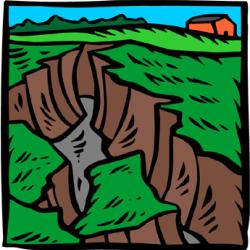Source Institutions
Source Institutions
Add to list Go to activity
Activity link broken? See if it's at the internet archive

In this experiment, learners design and build a model room in a shoebox and furnish it with tiny furniture. Then, learners put the room on a simple earthquake simulator to see what happens to the room during an "earthquake." Learners are encouraged to redesign their rooms to make them earthquake-resistant. The earthquake simulator is a piece of cardboard suspended by rubber bands from a copy paper box lid. The lesson plan includes basic information about types of earthquakes, different measurement scales, and ways to prepare for an earthquake.
- 10 to 30 minutes
- 30 to 45 minutes
- $1 - $5 per student
- Ages 4 - 14
- Activity, Lesson/Lesson Plan, Model, Simulation
- English
Quick Guide
Materials List (per student)
- Copy paper box and lid
- Rubber bands
- String
- Single hole puncher
- Brads
- Optional: 11/2 ”-2” rubber bouncing balls
- Optional: beads
- Shoe boxes
- Small jewelry boxes
- Cardstock/manila folders/index cards
- Scissors
- Markers (to decorate)
- Assorted small “recyclables” to make furniture and knick knacks–beads, pipe cleaners, marker tops, plastic film canisters, etc.
Subjects
-
Earth and Space Science
-
Earth Processes
- Earthquakes
-
Earth Processes
-
Engineering and Technology
-
Engineering
- Architectural Engineering
- Civil Engineering
-
Technology
- Construction
-
Engineering
-
The Nature of Technology
-
Technology and Society
- Impacts of Technology
-
The Design Process
- Invention and Innovation
- Problem Solving
- Troubleshooting and Maintenance
-
Technology and Society
Informal Categories
- Model Building
Audience
To use this activity, learners need to:
- see
- touch
Learning styles supported:
- Involves hands-on or lab activities
Other
Includes alignment to state and/or national standards:
This resource is part of:
Access Rights:
- Free access
By:
Rights:
- All rights reserved, OMSI, 2000
Funding Source:
- National Science Foundation, 9053625
